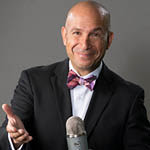Since we spend most of our waking hours
at work, and if our boss happens to be a miserly, condescending, fault finding
slave driver, that environment would destroy the proactive-creativity and
ambition within the most buoyant, generous and optimistic individual.
And, if your boss happens to be YOU as
well, then no matter where you go, there you are.
All modesty aside, the most important
person in any start-up is the one who gave it life and is driving it to its
stated goals. Serving both the customer and the employee. You may be able to
survive without your accountant, lawyer and top talent for a time. You may even
survive without your best clients as the business evolves. But if it were not
for the courage and vision of the founder, the enterprise would never see the
light of day.
Most of us however, we’re taught to
take the smallest piece, get on the back of the line, wait your turn, be
modest, stop asking and don’t be greedy. To be selfish is bad to be selfless is
good. We were sold role models like Mother Teresa, Nelson Mandela, and Mahatma
Gandhi who selflessly gave their lives to their respective causes. And of
course, there’s our own mothers, who worked themselves to the bone and gave up
(or we’re willing to give up) everything so that we, their children, can have a
little more.
Who can possibly argue with that
saintly behavior and outlook?
Then there’s the do what you love, and
don’t worry about the money philosophy, that seems to be popular with so many
creative people. Therefore, many of us who start a business and selflessly take
care of everyone else, and yet neglect to take care of ourselves, (both in our
health and compensation) end-up paying the ultimate price ... burnout.
Another words, we pay ourselves last,
and inevitably undermine the very engine driving the enterprise towards its
ultimate destination.
My working career began in my father's
taxi shop some 40 years ago. I started helping out at the age of 13, and by the
time I was 16, because of dad’s legal problems, I ended up running the business
with some 70 employees. An extremely hard-working, smart and ambitious man, my
dad was never much interested in the rules imposed by bureaucracy. So, he was
arrested, and sentenced to 2-5 years in a federal prison, for tipping. Turns
out, our government frowns on that kind of generosity, when it comes to their
agents.
Our business relationship began with
the idea that I’m working for the family and therefore don’t need to be paid.
But should I need money for expenses he would just give it to me. So the effort
wasn’t connected to the reward. It was a weird and awkward relationship that
created an environment where I worked extremely long hours, and did not allow
myself to be compensated, because I was selflessly working for the greater good.
This philosophy followed me throughout
my career. As I worked very hard to take a business off the ground, and as it
began to succeed, I habitually continued to put myself last. What inevitably
happened was that I could no longer force myself to do the things that made the
business succeed in the first place, as I dug in my heels, and began the
process of self-sabotage. I saw myself doing it, I understood what was
happening, but I was totally powerless to stop it.
It is of course possible, to force yourself
to do the work without compensation for a time, as you’re taking a business off
the ground. The problem comes in when paying everyone first and yourself last
becomes the driving philosophy of your management style. Because there are
always things to spend money on. There is no limit on how much marketing,
inventory and talent you can invest in. So, in the name of delayed
gratification, you become a martyr to your own dream, and fall on the sword of
selflessness.
Imagine treating your best, most dedicated,
and proactive employee that way, and for so long. It will most certainly
undermine their natural ability to do those difficult things that make the
business work. Eventually, either physically or emotionally, they’re going to
quit. But when compensation is tied directly to the results created, and the
founder is paid first, then she will have the continued motivation to grow the
business so that the enterprise can thrive.
The child within is very attuned to
fairness and can become extremely vindictive when witnessing us taking care of
everyone else, while neglecting our own needs and desires. Perhaps in the
beginning, he will buy your dream and be willing to sacrifice in the pursuit of
the vision, but when the business begins to create results, and yet he is
treated like an entry-level serf, bitterness ensues.
When promises are broken, compensation
neglected and long hours the norm, that child within, will turn into an
obstinate donkey, and won’t move no matter what you do to prod it.
One of my close friends is a
tremendously successful entrepreneur with stores in all the major malls around
New York. He works extremely hard and for some 30 years he’s kept unusually
late hours. But at the end of the year, after his busiest season, he goes out
and buys himself a new sports car. He generously rewards the most important
person in his business and is therefore able to justify the effort to the
little boy who resides within. And this in turn, benefits all of his employees,
customers and vendors.
So, this is a case for practical
selfishness. As making yourself happy and rewarding your effort generously, is
the most selfless thing you can do for yourself, your business, and the world.


